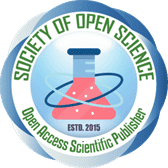Open Access Policy
Advances in BioScience (ISSN 2583-0058) is committed to providing free access to all published articles for the global scientific community, regardless of geographic location, institutional affiliation, or financial resources. We firmly believe that unrestricted access to scientific knowledge accelerates discovery, fosters international collaboration, and enhances the dissemination and impact of research—thereby increasing the reach, value, and credibility of scholarly communication.
Open Access Model
Advances in BioScience operates under a fully open access publishing model, making all articles freely and permanently accessible online immediately upon publication, without any subscription fees or access restrictions. This model ensures global reach and maximizes research impact by enabling unrestricted access across the worldwide scientific community. All content is published under the Creative Commons Attribution (CC BY) 4.0 License, allowing anyone to read, download, copy, redistribute, and adapt the material, provided appropriate credit is given to the original authors and the journal.
Creative Commons License
To facilitate broad usage while protecting author rights, all articles published in Advances in BioScience are licensed under the Creative Commons Attribution (CC BY) 4.0 International License. This license permits unrestricted use, distribution, reproduction, and adaptation in any medium, for any purpose (including commercial use), provided that:
- Appropriate credit is given to the original authors and Advances in BioScience as the original source.
- Any changes made to the original work are clearly and explicitly indicated.
- A link to the CC BY 4.0 license must be provided (https://creativecommons.org/licenses/by/4.0/).
This licensing agreement allows authors to retain copyright of their intellectual property rights while permitting others to build upon and share their work for educational, commercial, or other lawful purposes.
Article Processing Charges (APCs)
To sustain our open-access publishing model, Advances in BioScience applies a one-time Article Processing Charge (APC) upon acceptance of each manuscript. These charges cover the full range of services required to publish high-quality scholarly content, including rigorous peer-review management, professional copyediting, typesetting, metadata registration, online hosting, long-term digital archiving, and unrestricted global dissemination of the final published article. The APC structure is clearly outlined on the journal’s website to ensure complete transparency. We are committed to keeping APCs as affordable as possible without compromising the quality, integrity, or accessibility of the research we publish.
APC Waivers and Discounts
Advances in BioScience is committed to fostering equitable access to scientific publishing by supporting researchers from all regions of the world, including those who may face financial barriers. We recognize that Article Processing Charges (APCs) can pose challenges for authors without institutional funding, particularly those from low- and middle-income countries or under-resourced institutions. To ensure that financial barriers do not impede the publication of high-quality research, we offer APC waivers and discounts on a case-by-case basis. Detailed information regarding eligibility criteria, the application process, and the scope of available support is provided on our Article Processing Charges (APCs) page under the Author Guidelines.
Impact and Benefits
The open access model offers numerous advantages for the scientific community and beyond:
- Enhanced Research Visibility & Discoverability: Open access articles are freely available online, making them easily discoverable through search engines, academic databases, and institutional repositories. This significantly broadens potential readership beyond those with costly subscriptions.
- Higher Citation Rates: Open access articles receive significantly more citations than paywalled publications, as researchers worldwide can freely access and cite the work. This increased visibility accelerates scientific progress by ensuring valuable research reaches its intended audience without subscription barriers.
- Global Knowledge Equity: Open access promotes equal opportunities for researchers in developing countries and under-resourced institutions to access the latest scientific knowledge. By reducing the knowledge gap between well-funded and less affluent academic communities, it fosters inclusive participation in global scientific dialogue and ensures that access to research is not limited by geographic location or institutional wealth.
- Accelerated Scientific Discovery: Free and immediate access to research enables rapid dissemination of findings, ideas, and innovations, allowing new research to build upon existing work more efficiently. Scientists can immediately access the latest findings to inform their research, reducing duplication of efforts and speeding up breakthrough discoveries and interdisciplinary collaboration.
- Enhanced Transparency and Reproducibility: Open access publishing often requires authors to share underlying data and methodologies, enhancing reproducibility and peer review. This transparency improves scientific rigor, helps detect and correct errors, and strengthens the reliability of published findings. The open availability of research findings reinforces scientific integrity by allowing broader examination of methods and conclusions.
- Long-Term Preservation and Accessibility: Open access journals and repositories are committed to the long-term digital archiving and preservation of scholarly content, ensuring that research remains accessible to future generations and citable over time. This sustainable approach protects against the loss of valuable scientific knowledge and maintains continuous access to the scholarly record.
Join us in our mission to make scientific knowledge freely available, open, and accessible to all.





